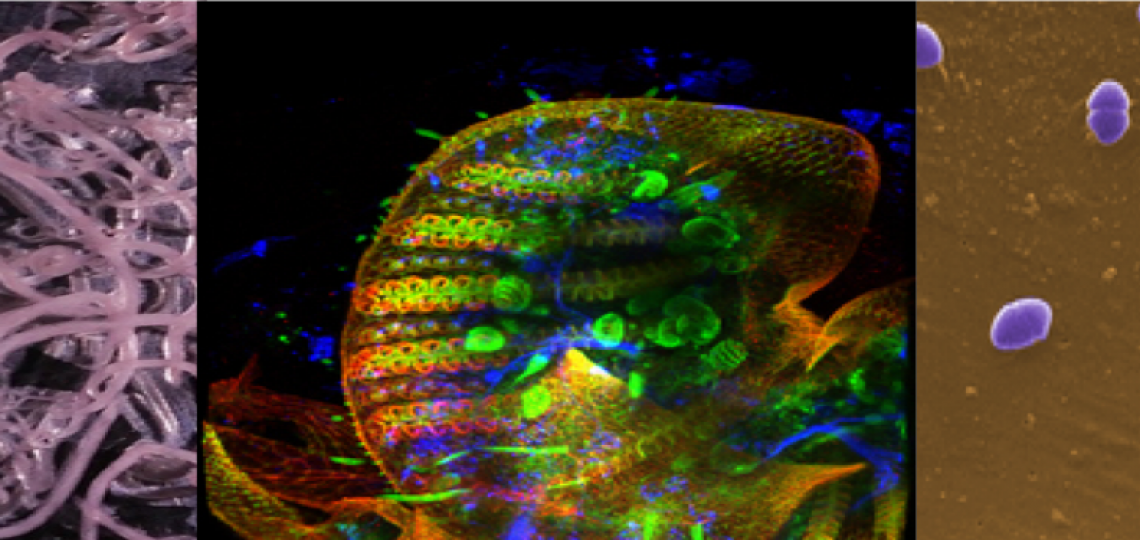Contribute to our understanding of fundamental genetic and genomics principles. Use the insights you gain to illuminate evolution, elucidate new biology, and potentially guide the development of new treatment options to improve human health.
Frontier Scientific Research
As the home of the number one NIH-funded genetics department, the largest clinical genetics program in the nation, and the BCM Human Genome Sequencing Center, Baylor College of Medicine is an international leader in genetics and genomics. Our faculty members and students publish investigations from fundamental to translational research in top-tier journals in the biomedical field. Many faculty and trainees are involved in national and international collaborative projects such as the All of Us Research Program, the GREGoR (Genomics Research to Elucidate the Genetics of Rare diseases) Consortium, the UDN (Undiagnosed Diseases Network), and the KOMP (Knockout Mouse Phenotyping Project). BCM ranks fourth in the world in the Nature Index of high affiliation articles in genetics. Since 1971, BCM has been making breakthrough discoveries in genome integrity, molecular evolution, gene regulation and brain function, and we have been creating the tools and techniques that make these discoveries possible.
We are a global leader in the translation of genomic technologies to clinical diagnostics. As a student in our program, you will witness the tremendous impact of these technologies on the evaluation of Mendelian disorders and apply this information to your research.
If your goal is to contribute to our understanding of fundamental genetic principles and use the insights you gain to guide the development of new treatment options to improve human health, then we invite you to join us. For more information view our Department of Molecular and Human Genetics brochure.
Multi-Disciplinary Training Environment
At BCM, faculty members have the freedom to select the programs that align with their research. Rather than be bound by a department or center, faculty members opt into participation in any graduate programs. This ensures that our students can interact with faculty who bring different areas of expertise and perspectives across the full depth and breadth of genetics and genomics.
Personalized Training & Career Development
Partnering with program leadership and your mentor, you will have the flexibility to tailor your training to match your interests and prepare for the career you want.
Where Will Your Ph.D. Take You?
From day one we encourage you to think deeply about your career choices. Wherever your ambition leads, you will receive the support you need to follow a path well worn by our alumni who have built successful careers across diverse endeavors.
Training Grant
The Genetics & Genomics Graduate Program is supported by National Institute of General Medical Sciences Ruth L. Kirschstein National Research Service Award (NRSA) Predoctoral Institutional Research Training Grant (T32) Training Grant GM139534.
In order to earn this grant, our program successfully demonstrated that we provide high-quality research training, mentored research experiences, and additional training opportunities that equip trainees with the technical (e.g., appropriate methods, technologies, and quantitative/computational approaches), operational (e.g., independent knowledge acquisition, rigorous experimental design, and interpretation of data) and professional (e.g. management, leadership, communication, and teamwork) skills required for careers in the biomedical research workforce (i.e., the breadth of careers that sustain biomedical research in areas that are relevant to the NIH mission).
Stipends and Benefits
At BCM we are focused on you and your training. Our students receive a competitive stipend, full tuition remission and individual health insurance at no cost to the student. If your vision for your future includes teaching, you may choose to gain experience as a teaching assistant. If you do not want to teach, you have the freedom to focus exclusively on your education and research as well as to work with your mentor to take advantage of other BCM resources that match your interests.
Graduate School of Biomedical Sciences
The Genetics & Genomics graduate program is part of the Baylor College of Medicine Graduate School of Biomedical Sciences. Learn more about our curriculum and admissions process as well as find resources and services designed to support your success throughout graduate school and your future career.
Many of the faculty members in our inter-disciplinary program are members of the BCM Department of Molecular and Human Genetics. The Department's mission is to transform medicine with the practice and science of genetics.












